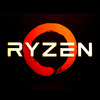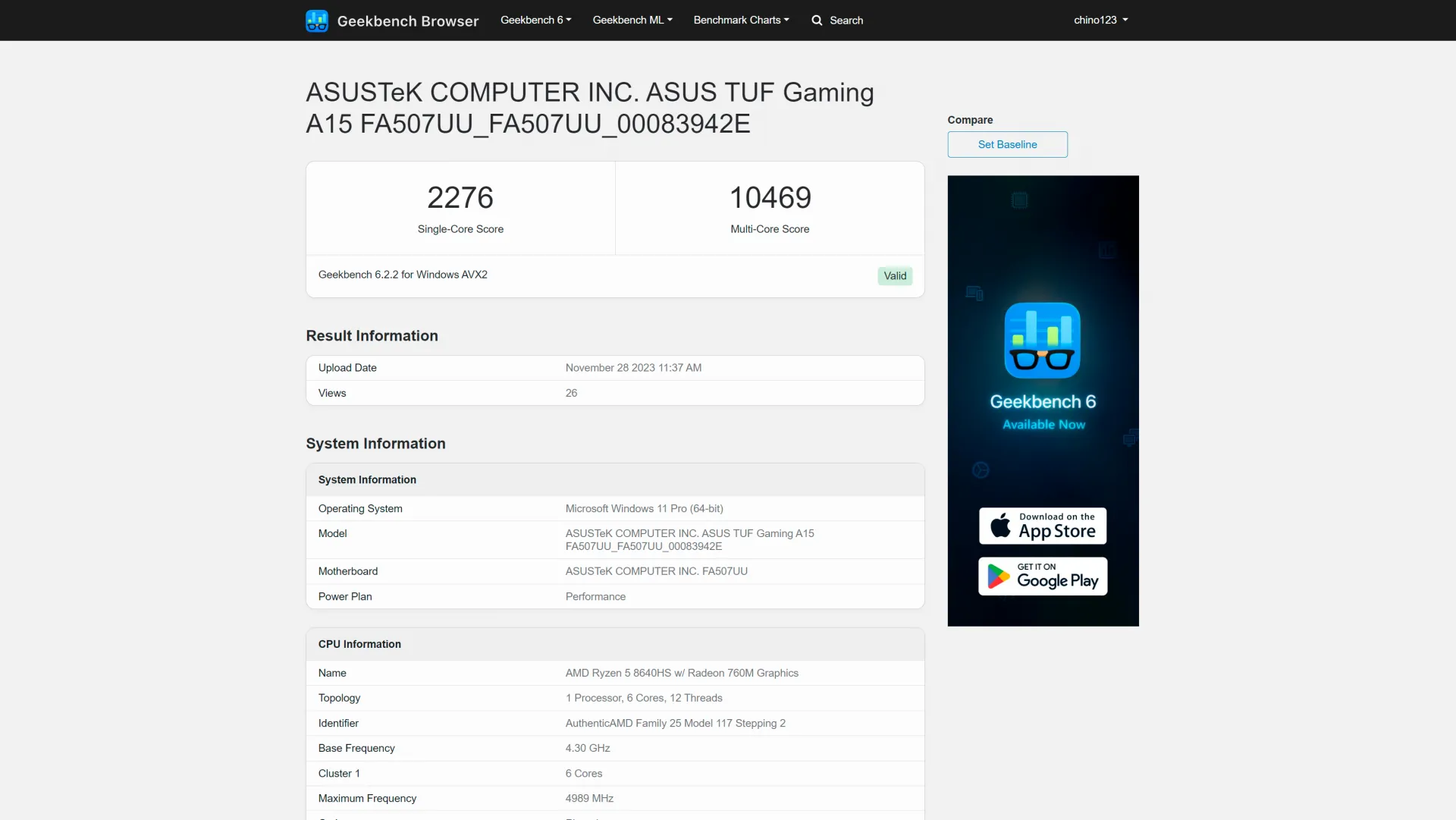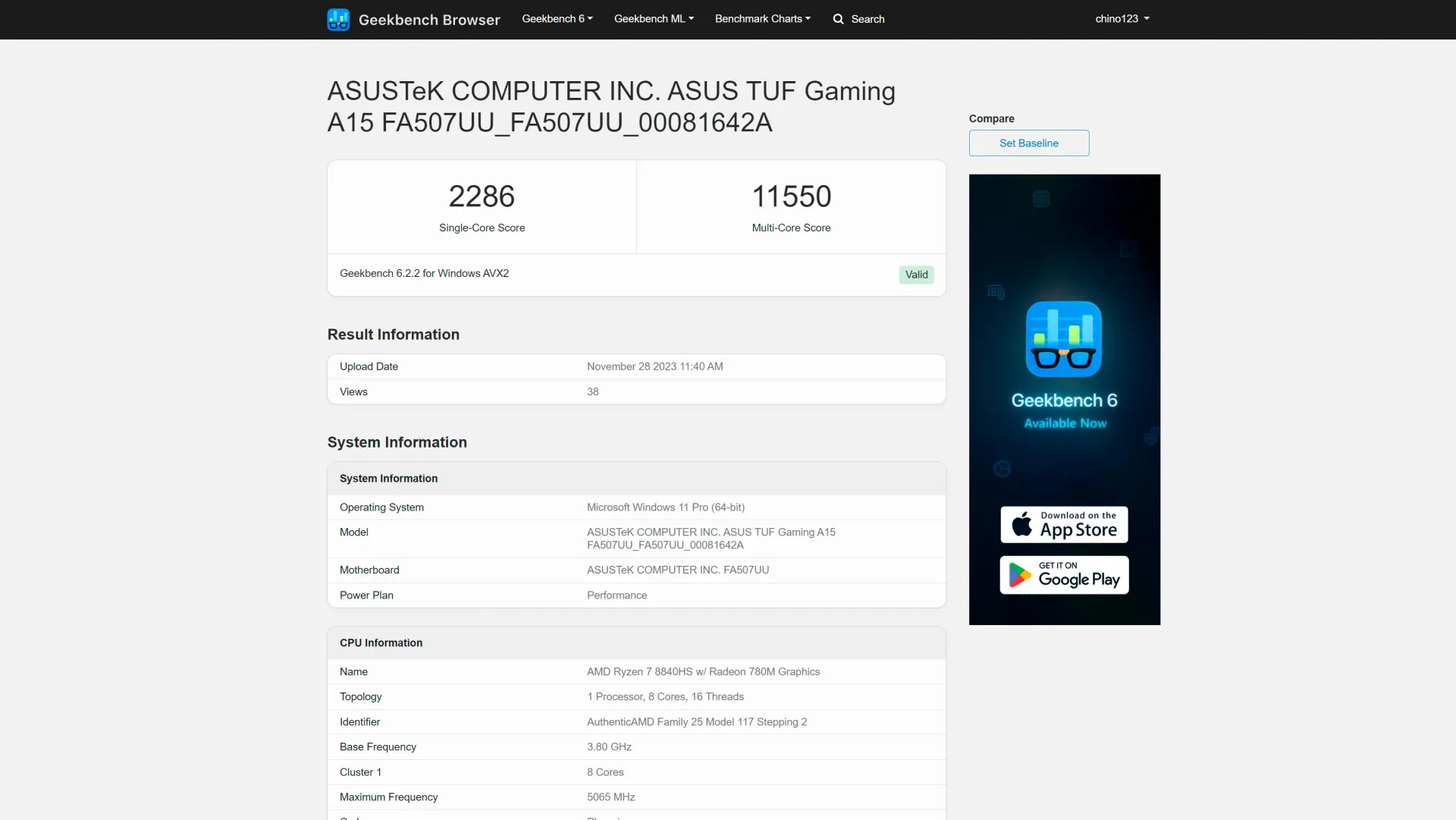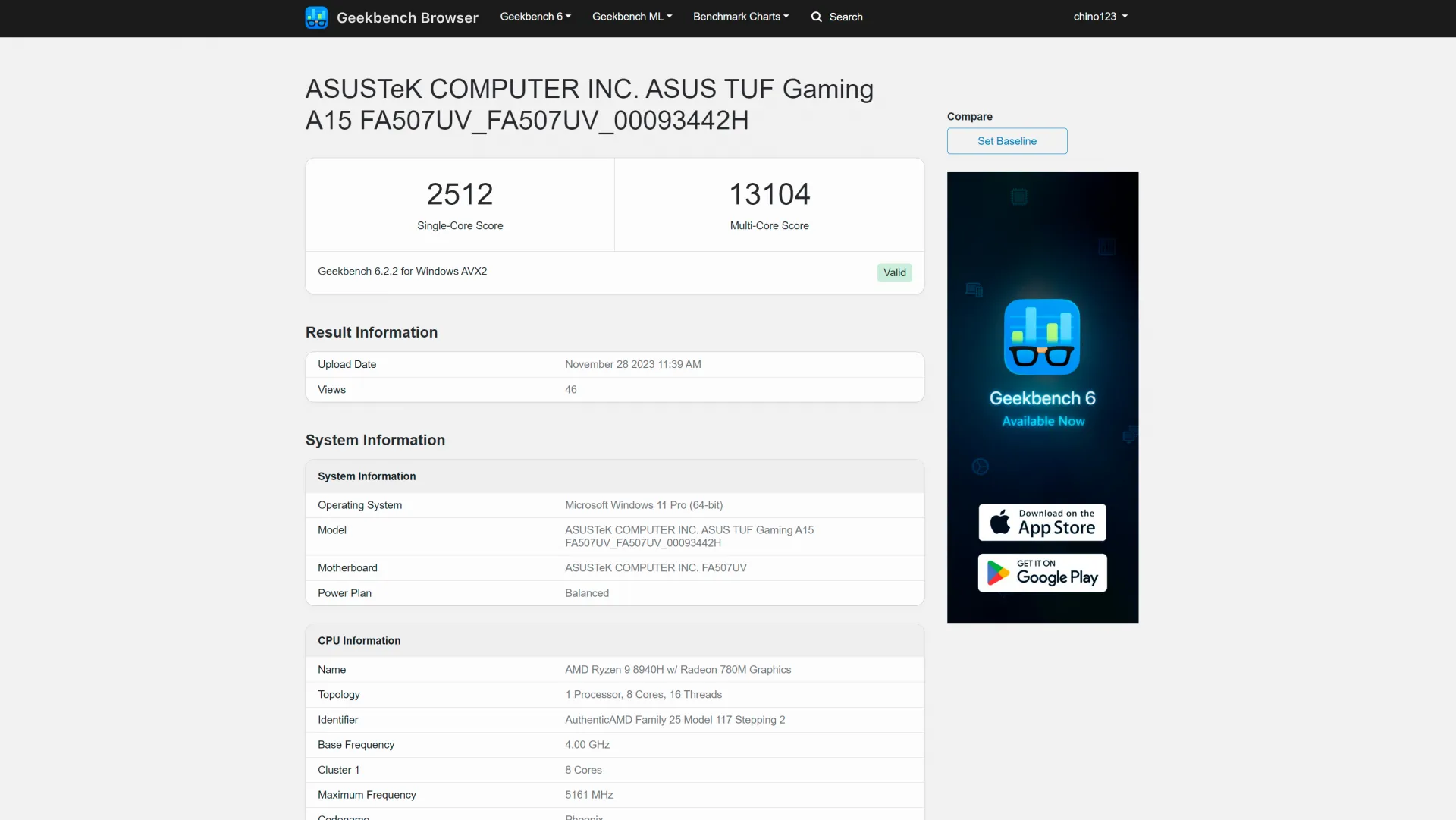The Phoenix Point series, featuring AMD's Zen 4 cores and RDNA 3 graphics, was initially marked by a delayed launch. Despite a promised March release, the Zen 4 chips were not dispatched to partners until April, leading to a later retail presence. Considering the brief market presence of Phoenix Point, AMD’s plans for an early refresh with Hawk Point is somewhat unexpected.
Benchleaks reported Geekbench 6 results for the Ryzen 9 8940H, Ryzen 7 8840HS, and Ryzen 5 8640HS, indicating AMD's continuation of a three-model lineup similar to Phoenix HS series. The Hawk Point chips are still listed under Phoenix in Geekbench 6, suggesting a minor update to the existing Phoenix silicon.
The Ryzen 8040 series maintains the use of Zen 4 cores, but details about the graphics engine remain unclear. Speculations suggest the incorporation of RDNA 3.5 graphics, possibly featuring enhancements such as higher clock speeds or an integrated L3 cache for the GPU. However, the exact GPU specifications in Geekbench 6 are not disclosed.
The Ryzen 9 8940H and Ryzen 7 8840HS in the Ryzen 8040 series are configured with 8 cores and 16 threads, and the Ryzen 5 8640HS with 6 cores and 12 threads, mirroring their Phoenix predecessors. These CPUs share a configurable TDP range of 35–54 watts, with higher-watt configurations likely for the Ryzen 9 models. Base clock speeds for the Ryzen 8040 models appear consistent with their Phoenix equivalents, and maximum boost clocks, as per Geekbench, are slightly above those of the Phoenix series.
Benchmark comparisons between the Hawk Point and Phoenix models reveal modest performance improvements in the Ryzen 8040 series. The Ryzen 9 8940H shows a 1% increase in single-core and 11% in multi-core performance over the Ryzen 9 7940HS. The Ryzen 7 and Ryzen 5 models demonstrate similar marginal improvements.
The early benchmarks for Hawk Point are preliminary and based on single test runs, as opposed to aggregated data for the Phoenix series. Thus, caution should be exercised when interpreting these results.
AMD’s projected timeline for the Hawk Point release is unclear, but it is expected to compete with Intel's Meteor Lake, launching on December 14. While the Ryzen 8040 series does not offer a significant performance leap over Phoenix Point, it positions AMD to maintain competitiveness in the mobile CPU market. For more substantial performance gains, consumers may look forward to AMD's future Zen 5 microarchitecture in the Strix Point series, although the graphics capabilities are anticipated to remain within the RDNA 3.5 framework.
Source: toms hardware




